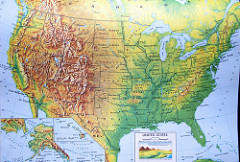
Nevares v. Adoptive Couple, 2016 UT 39
The Utah Uniform Child Custody Jurisdiction and Enforcement Act (UCCJEA) creates a uniform and predictable method for determining which state has jurisdiction to make child custody decisions. Bobby Nevares filed suit to establish paternity and custody over Child. Nevares and Mother are residents of Colorado. Nevares tried to preserve his parental rights because Mother intended to place Child for adoption. Mother traveled to Utah two days before Child’s birth. She gave birth to Child while in Utah and relinquished him to Adoption Center of Choice, which is a Utah-based adoption agency. Nevares filed a petition in Utah district court to establish paternity, and he asked for immediate and sole custody of Child. Mother and the adoption center opposed the petition, and the district court agreed, dismissing the case. Nevares appealed the dismissal, and the court held that the district court’s interpretation of Utah Code section 78B-6-122 violated due process principles.
The Illinois adoptive couple argued that Illinois, and not Utah, had subject matter jurisdiction to make custody determinations about Child. The district court concluded that Utah was not Child’s home state because Child was not living in Utah with a parent or person acting as a parent when Nevares filed his action. Thus, the case was dismissed for lack of subject matter jurisdiction, and Nevares appealed. Before a court can make an initial child custody determination, it must assess whether it has jurisdiction under the UCCJEA. Once a state makes an initial child custody determination, that state obtains exclusive, continuing jurisdiction, which exists until that state relinquishes or is divested of its exclusive jurisdiction in accordance with the UCCJEA or a similar act.
Child was born in Utah and stayed there for the first eight days of his life. Utah was arguably Child’s home state for UCCJEA purposes during those eight days. But Utah stopped being Child’s home state once he moved to Illinois with the adoptive couple. No state met the UCCJEA’s definition of Child’s home state during that time. However, Illinois became Child’s home state once Child lived in Illinois for six months. Utah was not Child’s home state when Nevares started his action because Child had moved to Illinois twelve days earlier. Even if Utah was Child’s home state for the first eight days of his life, neither a parent nor a person acting as a parent continued to live in Utah. In conclusion, Utah does not have UCCJEA jurisdiction to make an initial child custody determination.
Both the adoptive couple (each of whom qualifies as a person acting as a parent to Child) and Child himself have a significant connection with Illinois other than mere physical presence, as Illinois has been their domicile for more than five years. Because Illinois would have jurisdiction to make an initial child custody decision over Child under Utah Code section 78B-13-201(1)(b), Utah lacks UCCJEA jurisdiction. Therefore, the district court correctly dismissed the action for lack of subject matter jurisdiction. When a court determines it lacks subject matter jurisdiction, it retains only the authority to dismiss the action.
Here, the UCCJEA mandates that Utah has no subject matter jurisdiction, and the district court did not err by dismissing Nevares’s complaint on that basis. The Court did not resolve any substantive issues concerning paternity and custody. Nevares must seek relief from the Illinois court because the Supreme Court of Utah lacks subject matter jurisdiction.




